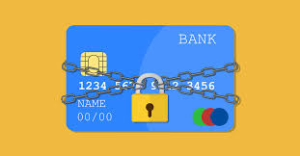In Singapore, a wave of phishing scams that captured media attention last month has extended its reach across various Asian nations. Countries such as Hong Kong, Malaysia, India, and the Philippines have reported significant financial losses due to these increasingly sophisticated fraudulent schemes.
Just as 470 customers of OCBC Bank were swindled out of approximately $8.5 million, similar phishing tactics employed in other regions have proven alarmingly effective. The messages sent by these scammers are crafted so convincingly that victims often fail to recognize the deception until it’s too late.

OCBC’s recent commitment to fully reimburse those affected by phishing attacks has been met with appreciation. However, the sheer magnitude of these scams and the ease with which criminals exploit digital banking systems have sparked urgent discussions in Singapore about enhancing security measures to safeguard potential victims.
A report from the South China Morning Post highlights the widespread impact of these scams throughout Asia. Over the past four and a half years, scammers have managed to launder nearly HK$29 billion (around S$5 billion) from over 10,000 individuals in Hong Kong alone, utilizing cryptocurrency wallets and bank accounts to conceal their activities.

In the Philippines, authorities made headlines last week with the arrest of five suspects involved in a significant online banking fraud scheme that unfolded just before the Christmas season. This incident compromised the accounts of more than 700 clients of BDO Unibank, one of the nation’s largest banks. Customers awoke to find unauthorized fund transfers had occurred overnight, leaving them bewildered and financially strained.
Meanwhile, in India, the elderly population has emerged as a particularly vulnerable demographic in the face of these scams. Many older individuals, who may lack familiarity with digital technologies, have fallen prey to cybercriminals. Reports indicate that this issue is pervasive enough that cyber fraudsters are costing the country around US$25 million (approximately S$33 million) each month.
The escalating crisis calls for urgent attention and action as individuals across Asia grapple with the consequences of these insidious scams.
In a recent report, Pavan Duggal, a cybersecurity specialist and attorney at the Supreme Court, highlighted a troubling trend: scammers are increasingly targeting senior citizens. He attributes this phenomenon to the rapid transition to digital payment systems that many older adults have had to navigate without adequate training or preparation.
This issue has become particularly pressing in light of statistics from Malaysia, where last year saw a staggering 8,992 reported online scams, resulting in losses totalling 58 million ringgit (approximately S$18.65 million). This marks a significant rise from 2019, which recorded only 2,512 cases with losses amounting to 30 million ringgit (around S$9.65 million).
In response to the growing prevalence of these scams, the Monetary Authority of Singapore (MAS) announced on January 19 its intention to implement additional measures aimed at enhancing the security of digital banking. However, the MAS emphasized that consumers also have a responsibility, stressing that “customer vigilance is paramount.”

Amid these developments, a local data scientist known by the alias Captain Singkie expressed his concerns about the ongoing threat of phishing attacks. He warned that while OCBC may have been the focus of recent scams, customers of various other platforms and organizations remain at risk. “One Singaporean scammed is one too many,” he passionately stated. We must collaborate to prevent these scams from occurring.”
Captain Singkie also called upon fellow Singaporeans to join a petition on change.org to raise awareness about this critical issue. The collective effort aims to safeguard individuals from the rising tide of online fraud.
As the conversation continues around cybersecurity and consumer protection, there is a palpable sense of urgency to act before more victims fall prey to these deceptive schemes.

Maxthon
In the ever-changing landscape of the digital realm, where online engagements can transform within moments, safeguarding personal security while exploring the vast expanse of the internet has become paramount. With an intricate web of connections at play, selecting a web browser that prioritizes security and privacy is essential. Among the myriad of available options, the Maxthon Browser shines brightly, emerging as a remarkable choice that addresses these critical issues without imposing any costs on its users. This advanced browser boasts a plethora of built-in tools, including a powerful ad blocker and a variety of anti-tracking features—key elements designed to bolster your online privacy.
Maxthon has carved out a unique niche in the crowded browser marketplace by dedicating itself to delivering an experience that prioritizes safety and discretion. It stands as a guardian of personal information, diligently working to shield users from a multitude of potential dangers lurking in the digital shadows. Employing cutting-edge encryption techniques, Maxthon ensures that sensitive data remains protected and confidential throughout every online endeavour.
When it comes to enhancing privacy during your internet explorations, Maxthon truly excels. Each aspect of this browser is thoughtfully engineered with features aimed at fortifying your online presence. Its effective ad-blocking capabilities eliminate disruptive advertisements, while comprehensive anti-tracking measures actively thwart invasive scripts that could compromise your browsing experience. This harmonious blend of tools empowers users to navigate the internet with renewed confidence and tranquillity. Furthermore, the incognito mode adds an extra layer of security, allowing individuals to explore the web with enhanced assurance, free from prying eyes.
As you embark on your digital journey with Maxthon, you find yourself enveloped in a sense of safety, knowing that this browser is dedicated to preserving your privacy and protecting your online activities. In a world where the threats are numerous and ever-evolving, Maxthon stands as a steadfast companion, guiding you through the complexities of the internet while ensuring that your personal information remains secure and your browsing experience is both enjoyable and worry-free.

The post How To Protect Yourself From Fraud appeared first on Maxthon | Privacy Private Browser.